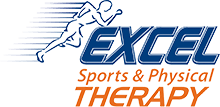The temporomandibular joint (TMJ) connects the jaw to the skull. If there is an injury to this joint or it becomes damaged, it can cause TMJ dysfunction. TMJ can also be caused by a misalignment of the teeth, gum chewing, arthritis, teeth grinding or jaw injury. Symptoms of this TMJ disorder include pain in the jaw, jaw popping, headaches, sore jaw muscles, locking of the jaw, pain in the temple and earache. It’s important to realize that the temporomandibular joint is a complex and important structure comprised of bones, tendons and muscles, and you may have pain on one or both sides of the jaw.
Start Your PT Journey Give Us A Call
Diagnosing TMJ Disorder
There is no specific method of diagnosing TMJ. A physician will take your medical history and do an exam. Your physician may also send you to a dentist specializing in jaw disorders or to an otolaryngologist. Your symptoms may be due to a condition known as trigeminal neuralgia, salivary gland disease or even swollen lymph nodes. The idea is to rule out other medical problems.
Home Remedies and Treatment for TMJ Syndrome
Sometimes, home remedies can relieve the symptoms of TMJ syndrome. Some people respond well to over-the-counter meds like ibuprofen and aspirin. Ice packs applied to the jaw joint may also help. Sedative essential oils, such as clary sage and lavender may give temporary relief. When home remedies don’t work, medical treatment may be needed. A jaw specialist may use a dental splint to keep teeth properly aligned and to prevent tooth grinding. Other types of medical treatment include trigger point acupuncture, joint replacement or a TMJ arthroscopy. Muscle relaxers and anti-inflammatory meds may be prescribed.
Physical therapy is effective in the treatment of TMJ. A physical therapist will analyze your jaw mobility and release muscle tension in the neck and head area. A comprehensive evaluation is done of the neck, shoulder girdle and thoracic spine to determine if those structures are causing your symptoms. The goal of physical therapy is to restore the interaction of the muscles and joints and to restore normal function. Treatment may consist of different modalities. Active modalities include soft tissue massage, joint mobilization, myofascial techniques and jaw exercises. Electric stimulation and ultrasound may be used to decrease muscle tension and provide pain relief. In addition, a physical therapist can educate you on dietary changes that will decrease stress on the jaw joint.
Dentists and Physical Therapists
More and more, dentists are working with specialized physical therapists to deliver effective treatment for patients with TMJ disorder. This team effort has led to an improvement in over 80 percent of cases. Working with a physical therapist who understands craniofacial disorders is crucial to success. These specialized physical therapists will understand the relationship between the neck and teeth areas. This team effort is successful because the dentist can explain the underlying problems and help the therapist design custom exercises.
When physical therapists treat patients with TMJ, the goal is to improve mobility and alignment along with strengthening the muscles. And if the patient has scar tissue, they can help treat that too.
Are You Suffering from TMJ Syndrome?
Have you found yourself feeling discomfort while enjoying a meal, engaging in conversation, or even during something as simple as a yawn? Perhaps you’ve noticed jaw pain or find it challenging to open or close your mouth fully. If these experiences sound familiar, our compassionate and skilled physical therapists are here to guide you, offering tailored advice on pain relief techniques and symptom management that you can incorporate into your daily life.
If TMJ syndrome remains unchecked, it could evolve into persistent chronic pain, significantly impacting your quality of life. We invite you to take a step towards recovery and wellness by scheduling an appointment for TMJ physical therapy. Together, we can work towards easing your symptoms and reintroducing the joy and comfort back into your everyday activities.
Request an appointment or call us today at Affton, North O’Fallon, St. Louis, Creve Coeur, Ellisville, Saint Peters, O’Fallon, Saint Charles, Warrenton & Wentzville, MO centers.

